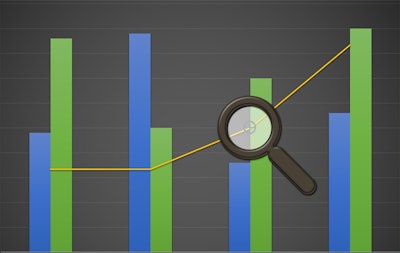
The ever-expanding volumes of data being generated from multiple internal and external sources is increasingly challenging most organizations. Figuring out how to analyze, interpret, and use the data to gain market advantage is a key challenge all businesses are facing.
Data democratization means removing all the bottlenecks that restrict access to the data, providing an easy way to organize, understand and access it. The ultimate goal of data democratization is to expedite the decision-making process and identify new opportunities by getting the right data to the people who need it when they need it.
There isn’t a “silver bullet” approach because every business has a unique set of circumstances, but there are a number of common challenges that need to be understood before a holistic strategy can be formulated. The enabling technologies are also immature and evolving fast, making the situation even more difficult for businesses to take the first step.
Why Implement?
Business performance and growth is driven by empowered individuals across the organization when they are provided with improved decision-making capabilities based on immediate access to easily understood data. Opportunities exist within the agri industry for innovative companies with a forward-thinking outlook to make the first leap, disrupt the marketplace, and gain significant market share. Other industries are already ahead of the curve, so the lessons learned from their leading proponents can be used accelerate ahead of the competition.
Concerns and Challenges
Not everyone is sold on the idea of data democracy. A number of concerns get raised, including:
- Poor decisions could result from the misuse or misinterpretation of data.
- There is potential for duplication of efforts across different teams without a centralized analysis group.
- Uncontrolled access to data could expose sensitive information.
Additionally, there are challenges that still need to be addressed, including:
- Most organizations don’t have a data-driven culture and lack the desire to use data effectively in the decision-making process.
- Data still exists in hidden silos. People don’t want to let go, and others don’t know it is available.
- Data quality and duplication issues across aggregated data sources need to be corrected to gain trust before people will believe in and use it.
- Data governance needs to be put in place to make sure the right information is only available to the right people.
- Business models that have been sustainable for years are suddenly required to change.
- New types of data like streaming, social, and third-party data need incorporating together.
- Complex ecosystems need businesses to work with and coordinate efforts across multiple vendors.
- All of that being said, none of these challenges are insurmountable and can be addressed with a well thought out strategy.
Keys to Success
To be successful, organizations need to formulate a comprehensive strategy that focuses on all four pillars of data democracy:
- People need to be empowered to incorporate the data into their decision-making process without having to overcome any hurdles.
- Processes need to be put in place to ensure corporate governance requirements are met.
- The technology needs to be easy to use. Shield the users from complexities.
- The data has to be trusted by being comprehensive and accurate.

Failure to address any of the pillars could put the overall strategy at risk and fail to deliver the full benefits data democracy can deliver.
What About Our Industry?
The agri industry in particular is traditionally behind the curve when it comes to changing cultures and adopting new techniques or technologies. Long established back-office business applications are focused on entering and storing transactions with difficult to access and complex database schemas. This has led to a proliferation of disjointed and unstructured data held outside of core systems. It’s essential this valuable data is made easily available so everyone who needs it can use it.
The Future of Data Democracy
It’s too soon to realize the full benefits and impact data democracy will bring. Businesses need to develop and execute their strategy and evolve internal processes alongside the evolving tools to fully exploit them. If you don’t, the competition almost certainly will and you will be left scrambling to catch up and survive.
There are a number of evolving technologies that support data democracy, such as:
- The Cloud that provides unlimited storage and the processing capacity to manipulate vast quantities of unstructured data in real-time
- Data Federation which creates virtual databases from data aggregated across multiple diverse sources
- Data visualization that allows manipulation of data without the need to understand the technical details of how it is stored
- BI (Business Intelligence) “self-service” tools that provide simple ways for non-technical users to analyze and interpret data
Summary
There is no “one size fits all” approach to data democratization as each business has unique requirements based on multiple factors. Seek a technology partner who can offer teams that specialize in securely aggregating information from multiple sources and present the data in an easy to understand way. They should partner with you to build out a comprehensive data democratization strategy by drawing on a pool of shared experiences and knowledge. This will enable you to gain valuable insights and drive your businesses forward.
Stephen Berryis the lead software architect atCultura Technologies,一个家庭食品软件公司工作ng across North America and Europe.











